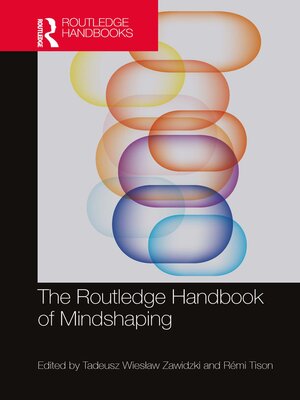The Routledge Handbook of Mindshaping
ebook ∣ Routledge Handbooks in Philosophy
By Tadeusz Wiesław Zawidzki

Sign up to save your library
With an OverDrive account, you can save your favorite libraries for at-a-glance information about availability. Find out more about OverDrive accounts.
Find this title in Libby, the library reading app by OverDrive.



Search for a digital library with this title
Title found at these libraries:
| Library Name | Distance |
|---|---|
| Loading... |
Of all species, human beings are uniquely capable of coordinating on long-term, large-scale cooperative projects with unfamiliar and genetically unrelated others. According to the mindshaping hypothesis, this relies on mechanisms and practices like imitation, pedagogy, normative cognition, and narrative self-constitution, which shape us into expert coordinators, without requiring time consuming and epistemically fraught attempts to read each other's minds. Mindshaping has been applied to many areas of inquiry, including game theory, shared agency, communication, the ontogeny of human cognition, the dissemination of scientific knowledge in popular media, mental illness, and the influence of social media technologies.
The Routledge Handbook of Mindshaping is the first volume of its kind. Comprising 37 chapters by an international team of leading scholars, this Handbook is organised into seven sections:
Within these sections, key topics are addressed, including game theory, social signalling and shared agency, folk psychology, the emotions, language acquisition and memory, stereotyping and consciousness-raising, moral agency, self-knowledge, rationality, epistemic norms, primate sociality, human-elephant relations, artificial intelligence, mental illness and neurodiversity, aesthetic expression, and politics.
An outstanding survey of a vibrant and emerging field, The Routledge Handbook of Mindshaping will be of great interest to those studying and researching philosophy of psychology, philosophy of cognitive science, philosophy of mind, and applied epistemology. It will also be of interest to those in related disciplines such as cognitive psychology, sociology, and anthropology.







